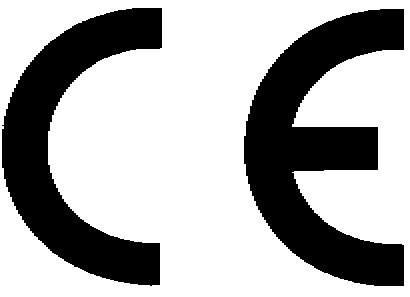Meeting Customs Inspections With Quality-Assured Products for the EU market
Quality will always have its imitators. Across every industry there is the standard-setting product at the one extreme, and the cheaply-made copy meant to replicate the aesthetic look of the original at the other. This is true for electronic devices, appliances, clothing, footwear… the list goes on.
Imitation even extends to major labeling standards, particularly in the case of the EU’s official, iconic CE “Conformité Européene” marking.

For most merchandise to be produced in or imported into the EU, they must comply with all regulations applicable to their particular industry. For instance:
- Electrical Equipment and Electronics (EEE) -- Restriction of Hazardous Chemicals (RoHS) Directive
- Children’s Toys -- Toy Safety Directive
- Machinery -- Machinery Directive
Overall, a large percentage of products from around 28 different industries require the CE marking.
Each Directive is different in respect to its industry, but the common denominator for all EU Directives is the uncompromising commitment to quality standards meant to protect consumer health, promote supply chain safety, and protect the environment.
Export Label
In some product countries, where factories pump out substandard imitation goods all too commonly, companies often supply products meant for foreign sale with unsubstantiated export labels that can look like this:

There is more than one possible reason why these markings so closely resemble the EU’s, and one shouldn’t automatically assume nefarious intentions. However, the fact remains that a marking alone shouldn’t be an indication of a product’s actual compliance. And in the eyes of EU authorities, it isn’t--which is good news for consumer safety
The labeling itself is not actually affixed by EU authorities. It is done by the manufacturer, as a declaration that the product and all its assembly parts have been successfully tested against their designated standards. Because of this, it is not the label itself, but the testing legitimacy behind the label that verifies the product’s quality and adherence.
Initial and Continuous Authority Inspections
Before your product is released for sale, Member State authorities are obligated to look for red flags by evaluating the product’s characteristics.
Beyond this, periodic reviews of your Technical File will be conducted to make sure compliance standards are being maintained. Your Technical File should include:
- Declaration of Conformity -- Proof that a conformance assessment has been conducted on your product
- All test reports
- Design drawings and diagrams of your product
- Material information of all substances used in your product
- A list of applied standards (RoHS, Toy Safety, etc.)
- Appropriate labeling
- Product instructions
- Risk assessment information
Your manufacturing or importing company is ultimately responsible for passing these authority checks, and failure to comply, especially with a product bearing the official CE marking, can result in product seizure, fines and even possible imprisonment.
Assurance Beyond the Label
Here is where a trusted Third-Party Lab Testing and Inspection Service can ensure all supply chain components are manufactured to true--not imitation--quality standards.
QIMA will assist you before, during and after production of your EU-destined product by offering technical advice and training for Quality Assurance and Initial Production; line checks during production to catch any deviations from your required specifications; and with verified test result documents to back up your CE claims.Easily Schedule Your Compliance Tests and Product Inspections Online
Our online platform and mobile application make it easy for you to schedule Compliance tests and Product inspections, and receive your results at any time. Book new tests, view pending orders, and access results from your mobile device. Our online platform provides valuable supply chain insights, including a summary of your QC activity, all of your supplier’s quality stats, industry benchmarking data, and more.
Get Started: Login or Create Your Account

